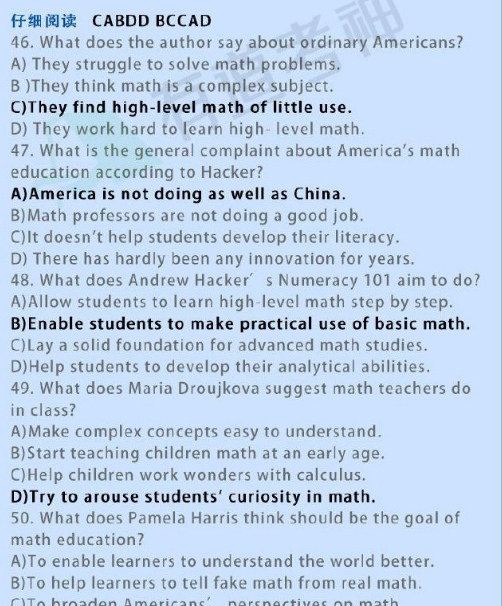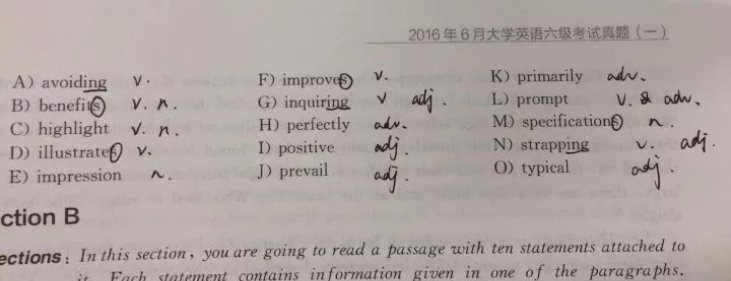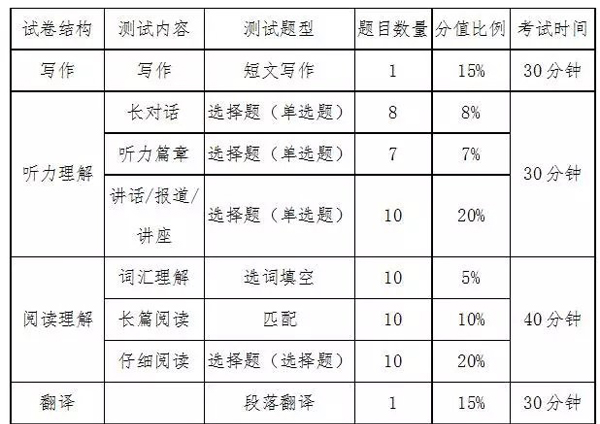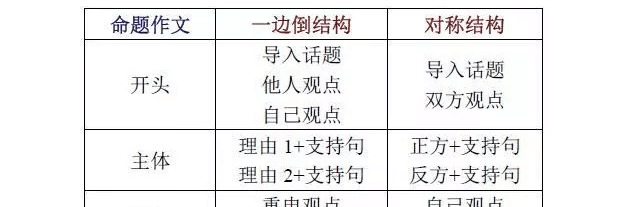2006年高考英语模拟试题及详解二
|
第一卷(三部分,共115分) 第一部分:听力(略)第二部分:英语知识运用(共两节,满分45分) 第一节: 语法和词汇知识(共15小题;每小题1分,满分15分) 从A、B、C、D四个选项中,选出可以填入空白处的最佳选项,并在答题卡上将该项涂黑。 21. --- You couldn't have chosen any gift better for me. --- ____ A. Oh, don't you like it? B. That's all right. C. I'm glad you like it so much. D. You have a gift for painting, don't you? 22. Mr. White was so angry at all ____ Bill was doing ____ he walked out. A. that; which B. that; that C. what; that D. which; that 23. My parents tried their best to laugh ____ my fears for the coming examination. A. from B. away C. against D. into 24. He began to ____ because every means ____ tried already. A. lose heart; has been B. lose heart; had been C. lose his heart; was D. lose his heart; had 25. --- Was the driving pleasant when you vacationed in Mexico last summer? --- No, it ____ for four days when we arrived, so the roads were very muddy. A. was raining B. would be raining C. had been raining D. have rained 26. We each took ____ tea after having ____ wonderful supper at my uncle's yesterday. A. a; 不填 B. 不填; a C. a; a D. the; the 27. --- You could have asked Mr. Johnson for help. He is kind-hearted. --- I ____ that. A whole day ____. A. forget; wastes B. forgot; was wasted C. forgot; had wasted D. forget; was wasted 28. --- I have just had my bike repaired. --- How much did they ____ for it? A. spend B. pay C. charge D. cost 29. The harder you study, the more questions you will think of ____. A. asking B. to ask C. being asked D. to be asked 30. --- You know our manager has been in hospital for days? --- Yes. I wonder if he is ____ better now. A. any B. more C. fairly D. quite 31. You might as well expect a river to flow backward ____ us carrying out the plan. A. than stop B. as to stop C. as stop D. so as to stop 32. There ____ no buses, we had to walk home after work yesterday. A. was B. were C. being D. had 33. I finally was admitted to Chongqing University. Never in all my life ____ so happy. A. I felt B. did I feel C. I had felt D. had I felt 34. --- The winner of the race is a tall and thin boy with thick glasses. --- Then it ____ be my friend, Mike, who looks like a "meat ball". A. mustn't B. can't C. might D. should 35. --- Why not take my car to the museum instead of walking? --- No, thanks. ____. A. I'm used to B. I'm able to C. I'm about to D. I've got to 第二节: 完形填空(共20小题;每小题1.5分,满分30分) 阅读下面短文,掌握其大意,然后从36-55各题所给的四个选项(A、B、C和D)中,选出最佳选项,并在答题卡上将该项涂黑。 In the company in which I work, each of us is afraid of at least one person. The lower your 36 is, the more people you are afraid of. 37 all the people are afraid of the twelve men at the top who helped 38 and build the company and now own and 39 it. All these twelve men are 40 now and drained(耗尽) by time and success of energy and ambition. Many have 41 their whole lives here. They seem friendly, slow and 42 when I come upon them in the halls and always courteous(谦恭的) when they 43 with others in the public lifts. They 44 work hard. They hold meetings, make promotions (推销活动), and allow their 45 to be used on announcements that are prepared and issued(发布) by somebody else. Nobody is sure 46 really runs the company, but the company does run. In the 47 course of a business day I am afraid of Jack Green because my department is part of his department and Jack Green is my 48; Green is afraid of me because most of the work in my department is done for the Sales Department, which is more 49 than his department. Green distrusts me sometimes. He makes 50 clear to me every now and then that he wishes to see everything 51 out of my department before it's shown to other departments. I know he doesn't really mean this. He is 52 busy with his own work to pay that much attention to all of mine, and I'll bypass (避开) him on most of our assignments (任务) rather than 53 his time and delay their 54 to people who have an immediate 55 for them. 36. A. position B. pay C. salary D. office 37. A. And B. But C. So D. Because 38. A. find B. found C. set D. buy 39. A. like B. enjoy C. help D. direct 40. A. honest B. tired C. elderly D. young 41. A. spent B. used C. wasted D. paid 42. A. strict B. responsible C. content D. honest 43. A. take B. drive C. fly D. ride 44. A. no more B. no longer C. no less D. no shorter 45. A. signs B. marks C. wives D. names 46. A. whom B. who C. that D. which 47. A. normal B. familiar C. easy D. busy 48. A. father B. teacher C. boss D. workmate 49. A. interesting B. useful C. worth D. important 50. A. that B. it C. this D. him 51. A. coming B. making C. producing D. inventing 52. A. too B. very C. quite D. greatly 53. A. use up B. make up C. take up D. break up 54. A. production B. delivery C. value D. time 55. A. order B. book C. need D. question 第三部分:阅读理解(共20小题;每小题2分,满分40分) 阅读下列短文,从每题所给的四个选项(A、B、C和D)中,选出最佳选项,并在答题卡上将该项涂黑。 A Pennsylvania--- When Connie Beck and her husband awoke to strange noises last weekend, they thought high winds were rattling (使发出响声) their home. What they found was even more unexpected: A deer was taking a bubble (泡沫) bath in their bathtub. "I wasn't exactly dressed for company," Mrs. Beck said. "We were just waking up." The deer burst through the front door early on Saturday, ran past the couple's bedroom and into the bathroom. Somehow he managed to turn on the water in the bathtub and knock over a bottle of bubble bath into the bathtub. He then got himself into the bubbly water. "You could hear the water running over the kicking ," Beck said. The Becks called State Game Commission officials , who arrived with tranquilizers(镇静剂) and a lot of laughter. "A guy said, 'There's nothing wrong ... he's just in there taking a bubble bath,'" Mrs. Beck said. The animal was soon brought under control, removed from the house and released. "He was unharmed except for a little cut above the eye," said Mrs. Beck. "We were also fortunate. There wasn't much damage, except for the front door, some marks on the tub, and a few hoof (蹄) prints on the floor." 56. When did the story take place? A. On the night of Friday. B. On the late night of Saturday. C. On the early morning of Saturday. D. On Sunday evening. 57. When Mrs. Beck said,“I wasn't exactly dressed for company,”(in Paragraph 3) she _____. A. was joking about the incident B. meant she never liked people to visit C. explained she was about to go to work D. wished she could have new clothes 58. After the animal burst through the door and entered the bathroom, he _____. A. managed to cover himself with bubbles B. kicked over the tub C. began to swim in the tub D. happened to turn on the bath taps 59. When he was removed from the house, _____. A. the deer was set free B. the deer destroyed the tub and the floor C. the officials made fun of the couple D. the officials discovered the deer was badly injured in the eye B If you're in charge of a project, the key to success is getting everyone to want to help you. As a director, I suggest, I gently push the actors in the direction I want them to go. In the 1986 movie Nothing in Common, Jackie Gleason's character, Max Basner, gets fired from his job as a clothing salesman. The scene, shot on a boat, shows Max's hopelessness about being out of work. I was looking for some ways that would allow Max to show his feelings. Jackie had far more experience at everything than I did, and at first I was frightened. What could I possibly tell "The Great One" about acting? Out of fear I decided to direct by suggestion, and I sat down with Gleason to talk about the scene. "So Max is sad, right?" I said. Gleason nodded. "And he's probably still carrying his pens with his name on them --- the ones he used to hand out to his customers, right?" Gleason nodded. "So what would you want to do with the pens after you were fired?" He was silent for a moment. "Why don't I throw them overboard?" I stood up and turned toward the crew. "Hey, everybody, Jackie has a wonderful idea. Let's shoot it." After filming the scene, Gleason called me over and said with a smile, "Garry, what kind of wonderful idea am I going to have tomorrow?" You and your team can discover the answers to problems together. When there are no prizes or gold stars for those who get the solution first, you'll all benefit when everything turns out right. 60. The writer tells us that, to succeed in the project you are in charge of, you should _____. A. make everyone work for you B. get everyone willing to help you C. let people know you have the final say D. keep giving orders to everyone 61. From the passage we can know _____. A. Jackie Gleason is the director of the film Nothing in Common B. Jackie Gleason is very angry when he is fired from his job C. Max, a character in the film, is in very low spirits when he loses his job D. Jackie Gleason writes the play of the film Nothing in Common 62. The underlined part "The Great One" (in Paragraph 3) refers to _____. A. Gleason B. the director himself C. Max D. Max's boss 63. Why did Gleason call the director over and smile at him? A. Gleason thought his wonderful idea was accepted by the director. B. Gleason succeeded in hitting upon a wonderful idea. C. Gleason was confident about his work the next day. D. Gleason appreciated the director's way of directing films. 64. The most suitable title for the passage is _____. A. Directing a Film B. The Key to Success C. A Wonderful Experience D. Working with Film Stars C Puerto Rico may be part of the USA but its music and dance is a mixture of both Spanish and American rhythms(节奏). The country, as a result, is a mixture of the new and the old. It exhibits the open American way of life yet remains the more formal Spanish influences(影响). This is showed in the buildings, not just the difference between the old and the modern in urban areas but also in the countryside, where older buildings sit side by side with schools and houses. It is found in the cooking, too many fast food restaurants together with local cooking which has its roots in the mixture of culture of all the Caribbean and in the music --- rock music is played in beach holiday centers but in the hilly center, Puerto Rican music can be heard. Old volcanic mountains, long motionless, take up a large part of the center, with the highest peak, Cerro de Punta, at 1,338 metre in the Cordillera Central. The mountains are surrounded by a coastal plain with the Atlantic shore beaches cooled all the year round by trade winds. The population is 3.8 million, of which about 1.5 million live in San Juan, although about another two million Puerto Ricans live in the USA. The average life is 73.8 years and GDP per person is US$12, 212, the highest in Latin America, although not up to the level of mainland USA. The people are largely a mixture of Amerindian, Taino-Arawak, Spanish and African. Most Puerto Ricans do not speak English and less than 30% speak it well. The people are very friendly and hospitable but there is law-breaking action, linked to drugs and unemployment. 65. It can be learned from the passage that _____. A. Puerto Rico belongs to the USA B. Puerto Rico is part of Spain C. Puerto Rico is an independent country D. Puerto Rico has the highest peak in Latin America 66. The underlined word “hospitable” in the last sentence means “_____”. A. impolite to visitors B. friendly and welcoming to visitors C. tired of visitors D. impatient to a patient 67. What's the character of Puerto Rico? A. Either new or old. B. A mixture of different peoples. C. Too many fast food restaurants. D. Either Spanish or American. 68. According to the passage, old volcanic mountains lie _____. A. in the center of the country B. on a coastal plain C. near the Cordillera Central D. in the north of the country D People who offer love, listening and help to others may be rewarded with better mental health themselves, according to a new study of churchgoers in the September/October issue of Psychosomatic Medicine. The study is one of the first to track the positive health benefits of altruistic(利他的) behavior, says Carolyn Schwartz, Sc.D. of the University of Massachusetts Medical School. "The findings really point up how helping others can help oneself," Schwartz says. Schwartz and his workmates analyzed (分析) the information collected by the Presbyterian Church for 2,016 church members. The members were asked about how often they "made others feel loved and cared for" and "listened to others", and how often they received this attention in return. The members also answered the questions about their mental and physical health. Most of the church members were in good physical and mental health to begin with, experiencing only normal levels of anxiety and depression. While the researchers did not find any significant differences in physical health clearly related to giving and receiving help, they concluded that giving help was a better predictor of good mental health than receiving help. But feeling crushed (压倒) by others' demands can have negative psychological(心理的) effects, according to the researchers. "Although our findings suggest that people who help others experience better mental health, our findings also suggest that giving beyond one's own resources is related with worse reported mental health," Schwartz says. Church leaders, older people, women and those who took satisfaction from prayer (祷告) were more likely to be helpers rather than receivers, according to the study. People who give help to others may be less likely to focus inward on their own anxieties and depression or more likely to see their own troubles in mind, leading to better mental health, say the researchers. Alternatively, it may be that "people who are functioning well psychologically are better able and hence more likely to give help," Schwartz says. 69. Which of the following is NOT mentioned in the passage? A. Older people are more likely to help others. B. The researchers got the result from those who were given help. C. Altruistic actions may result in better mental health. D. Feeling crushed by others' demands can be negative. 70. One reason why helping others results in better mental health is that _____. A. the helper may pay less attention to his own anxieties B. helpers may be rewarded by other church members C. the receiver will share the sorrow with the helper D helping others itself is a kind of physical exercise 71. What conclusion can we draw from the passage? A. It's more blessed to give than to receive. B. Well begun, half done. C. Where there is a will, there is a way. D. Every advantage has its disadvantage. E Although men and women have been growing crops for thousands of years, they have not always had enough to eat. Even today, many people in the world go hungry, and even die of hunger. If we are to grow enough for everybody, we have to grow more crops and better crops. Plants need the right food in order to grow. In particular, they need three chemical substances(物质) in the soil: nitrogen(氮), phosphorus(磷) and potassium(钾). They also need smaller amounts of other chemical substances like calcium. If there is too little of any of these substances in the soil, plants can't grow well. When a plant grows, it takes up these basic substances from the soil and builds them into itself. If we remove the plant from the soil and use it for food, we are taking some of these substances away, and this means that future plants will find less of them in the soil. In time, the soil would become too poor for plants to grow in it at all. To prevent this we must put basic substances back. One way of doing this is putting manure (肥料) on the soil. This contains the remains of plants that have been eaten, and, if we add it to the soil, we are returning some of the basic substances. In Europe and in Japan, manure from animals has for long been used in this way. Unfortunately much of the animal waste in India is used as fuel because there is not enough wood to burn. This means there is less manure for the crops. Even when we use manure, we cannot put back into the soil more of the basic substances than have been taken out. Often the soil does not have enough of them in the first place, and so we must provide extra supplies. We can use chemical fertilizers(化肥). Experiments in India have shown that, if we use a fertilizer containing a mixture of nitrogen and phosphorus, we get half as much rice again from the crops on any one piece of land. 72. According to the passage, how many methods are introduced to improve the soil? A. One. B. Two. C. Three. D. Four. 73. The underlined word “this”( in Paragraph 4) refers to the fact that _____. A. the soil would become too poor for plants to grow in it at all B. we are taking some substances away from the soil C. the plant takes up these essential substances from the soil D. even today many people in the world go hungry 74. To make sure that the soil has enough basic substances, people can _____. A. remove plants from the soil B. provide the soil with extra supplies C. plant as many plants as possible D. stop planting in the soil 75. The passage is mainly about _____. A. why more food is needed B. how to grow better crops C. the fact that people have not always enough to eat D. the essential substances that plants need 第二卷(一部分,共35分) 第四部分:写作(共两节,满分35分) 第一节: 短文改错(共10小题;每小题1分,满分10分) 此题要求改正所给短文中的错误,对标有题号的每一行作出判断:如果无错误,在该行右边的横线上画一个勾(√);如果有错误(每行只有一个错误),则按下列情况改正: 该行多一个词:把多余的词用斜线()划掉,在该行右边横线上写出该词,并也用斜线划掉。 该行缺一个词:在缺词处加一个漏词符号(∧),在该行右边横线上写出该加的词。 该行错一个词:在错的词下划一横线,在该行右边横线上写出改正后的词。 注意:原行没有错的不要改。 Look back on those days, I could see Grandma holding my little 76._______ hand and leading me up along the mountain paths. Occasionally he would stop and 77._______ bent down to gather fresh grass for the rabbits kept at home. Grandma 78._______ was strong at that time. She never got tiring when going up the 79._______ mountain with me. Every day she would teach me of something new 80._______ about nature around us and show me plants I did not know them. I 81._______ always had great time. One day we found a small cave in the mountain 82._______ while we were looking for a place from a storm. To our surprised there 83.________ was a stream of clear spring water in the cave. From then on, every 84.________ time we felt thirst, we would go to the cave to drink the sweet water. 85.________ 第二节:书面表达(满分25分) 假设你是下图中的女孩,请根据图画所提供的信息,用英语写一篇日记,描述你参加的一次环保活动。 注意: 1. 可以适当增加细节,以使行文连贯、完整; 2. 词数: 100左右; 3. 日记的开头已给出,但不计入总词数; 4. 参考词汇: 志愿者 volunteer。 April 26 Sunday Fine Our volunteer group gathered at our school gate at 8:00 this morning.
1-5 ACBBB 6-10 ABCCA 11-15 CBABA 16-20 CABCB 21-25 CBBBC 26-30 CBCBA 31-35 CCDBA 36-40 ABBDC 41-45 ACDBD 46-50 BACDB 51-55 AACBC 56-60 CADAB 61-65 CADBA 66-70 BBABA 71-75 ABABB 76. Look改为Looking 77. he改为she 78. bent改为bend 79. tiring改为tired 80. 去掉of 81. 去掉them 82. had后加a 83. surprised改为surprise 84. √ 85. thirst改为thirsty One possible version: April 26 Sunday Fine Our volunteer group gathered at our school gate at 8:00 this morning. We went to the streets. We collected rubbish in public places and helped to clean shop windows. Then we helped to water the plants in the parks. We hoped to make our city more beautiful with our hands. After that we went to the city square, where there were a lot of people. And we showed some pictures to them. We wanted more people to learn about the importance of stopping pollution so as to have a cleaner world. I love the volunteer work. I think it is necessary and instructive. 听力材料 (Text 1) W: Hurry, there is a bus coming now. M: Why run? There's another one in two or three minutes. (Text 2) M: Oh, sorry, Carol, I didn't know that you had a job. W: Yes. I work in a supermarket only in the afternoon. M: What do you do then? W: I help put goods into their bags. Sometimes it is very busy. (Text 3) W: Are you going to listen to the talk this afternoon? M: Of course, I will. It is said the speaker is a famous professor from Beijing University. W: Then let's go to the talk together. (Text 4) M: Can I borrow your car for a few hours this afternoon? W: Sure, Bill. But I need it back by 5:00. M: I'll have it back by 4:30 with full tank. (Text 5) M: Would you like anything else? W: No, thanks. That's all I need. M: Would you like us to deliver these this afternoon? W: Oh, yes, please. That would be lovely. (Text 6) M: Can I help you? W: Yes, I want to fly to Chicago on Wednesday the seventh and return on Friday the ninth. How much is the ticket? M: Tickets are cheaper if you stay over Saturday night. W: Thanks, but unfortunately I've already arranged some business here that Friday. So I'll just have to pay the extra cost. M: What time of day would you prefer? Morning or afternoon? W: Morning, because I have to be there by early evening. Is there a meal? M: Yes, they will serve breakfast, and you'll also see a film. W: Sounds good. But what's the total cost? M: Eight hundred and fifty dollars round trip. W: That's more than I expected! (Text 7) M: Where shall we stay in London, Jane? W: Let's stay outside the city. I've heard it's cheaper than staying in the center. M: Let's stay in Hammersmith. Then we can go straight there from the airport. W: What's the airport called? M: It's called Heathrow and we will arrive at Terminal 4. W: Oh, yes. I see it. It's on the Piccadilly Line. M: We can go to see the Olympia at Kensington. It's on the same line. W: That'll be a nice trip. How long are we staying in London? M: Four days. W: Good. Then we can go to see the Crown Jewels in the Tower of London. M: What are the Crown Jewels? W: It's the jewelry that belongs to the Queen of England. M: Okay, I'll find out how to get there on the underground. (Text 8) W: Do you ever eat fast food? M: Yes, I do. W: What kind of fast food do you normally eat? M: Oh, er, you know, hamburgers, sandwiches, well, sometimes a pizza. W: Oh, right. And how often do you eat fast food? Every day, more than once a week or less than once a week? M: Er, well, Monday to Friday when I'm working, every day, um, but not usually on the weekends. W: And what time of the day do you eat fast food? M: Well, at work as I said, you know at lunchtime. Sometimes, you know, if I'm going out and I've no time to cook in the evening, then I'll send out for a pizza. W: And what do you think of fast food? It's convenient? M: Sure, that's sort of the main reason that I eat it. We're paying the convenience; you know the speed of it. W: Does it taste good? M: Yeah. Um, I mean, not as good as the food in a good restaurant, but it's not bad. W: I think so. (Text 9) W: Now, Tony, what do you like best about being a football star? M: Well, I love to hear the cheering when I'm playing, especially when I score a goal. And, of course, the pay is good. W: Do you get nervous? M: Before the game, yes, but not during it. W: Can you tell us something about your training? M: Well, we train very hard, especially before a big game. The team has to stay together on the road --- sometimes for weeks --- and I find it very boring. W: Are you worried about tomorrow's game? M: No. Even if we lose we'll probably still get the cup. You see, we scored more goals than Northern City, so they'll have to win by at least four goals if they want the cup. I don't think they can do it. W: Thank you, Tony, and good luck tomorrow. (Text 10) Last summer I went to Miami Beach, Florida, where I stayed for two weeks. My friend John and I flew to Miami from New York in three hours. It was the first time for both of us to travel by air. We settled back in deep armchairs and enjoyed an unusual and breathtaking view of the world. We went there because the cost was lower out of season. We stayed at a hotel on the beach. We slept late every morning and then had breakfast outdoors near the pool. When the weather was not too hot, we used to go sightseeing in the morning. We visited the campus of the University of Miami and the Everglades. In the afternoon, we used to go swimming in the ocean or the pool, lie in the sun, or go water-skiing. After dinner in the evening, we used to go dancing in a discotheque to enjoy ourselves in the nightclubs. The weather was very good every day, and the two weeks went by only too quickly. We were both very sorry when we had to leave. [语法和词汇知识] 21. C。考查交际用语。上句意为“你送我的礼物真是再好不过了”。 22. B。考查定语从句和状语从句。第一个that引导定语从句,第二个that引导结果状语从句。 23. B。考查短语动词。laugh something away意为“以笑消除……”。 24. B。考查时态、语态及动词短语。try发生在began之前,故用过去完成时态。lose heart意为“灰心,失去信心”, 而lose one's heart to意为“爱上(某人)”。 25. C。考查时态。过去完成进行时表示在过去某一个时间或某一个动作之前一直在进行的动作。 26. C。考查冠词。 a tea相当于a cup of tea。 27. B。考查时态和语态。说话以前“忘了”, 故用一般过去时; 第二空应用一般过去时的被动语态。 28. C。考查动词。charge收(费),索(价)。 29. B。考查非谓语动词。 空格处不是作介词of的宾语,而是作定语修饰questions,所以要用不定式to ask。 30. A。考查副词。any可用于修饰形容词或副词的比较级。 31. C。考查惯用法。might as well do...as do...是一个句型,表示“做……与(做)……一样”。 32. C。考查独立主格结构。There be句型的独立主格结构作原因状语。 33. D。考查倒装和时态。否定副词never放在句首时,句子要使用部分倒装语序。由in all my life和前一句是一般过去时可知应用过去完成时。 34. B。考查情态动词。can't表推断,意为“不可能”。 35. A。考查惯用法。本句中的be used to意为“习惯于某事”,后面省略了walking。 [完形填空] 36. A。本句意为“你所处的职位越低,所害怕的人就越多”。 37. B。这里表示转折。句意为“但是所有的人都害怕……”。 38. B。found此处为“创建”的意思。 39. D。帮助建立公司,现在拥有并“管理”公司的那12位元老。 40. C。elderly是形容词,表示“年老的”。 41. A。他们中的许多人在这里“花费”了毕生的精力。 42. C。根据上文They seem friendly,slow可知这里应填“满足的”。 43. D。因空后有介词短语in the public lifts,故选ride,表示“乘公共电梯”。 44. B。他们“不再”努力工作。no longer 常置于系动词之后,实义动词之前。 45. D。允许他们的“名字”用在公告上。 46. B。没有人确信“谁”真正在管理这家公司。 47. A。在一天上班的“正常”过程中。 48. C。Jack Green是我的“上司”,所以我才害怕他。 49. D。销售部门的工作比Jack Green部门的工作更“重要”,所以 Jack Green也害怕我。 50. B。it 作形式宾语,真正的宾语是后面的that从句。 52. A。根据空后的to pay that much attention to all of mine可知应填too,表示“太……而不能”。 53. C。而不愿“占用”他的时间。 54. B。由who引导的定语从句可知此处意为“投递”。 [阅读理解] 56. C。细节理解题。由第四段The deer burst through the front door early on Saturday一句可知。 57. A。句意理解题。贝克太太诙谐地说:“我还没穿好衣服就见客人。那时我们刚刚睡醒。”由此可见小鹿这位不速之客闯入贝克夫妇的家是多么的突然。 58. D。细节理解题。从第五段Somehow he managed to turn on the water in the bathtub and knock over a bottle of bubble bath into the bathtub. 可得出此答案。 59. A。细节理解题。正确理解倒数第二段的最后一个单词released(释放)是解决本题的关键。 60. B。细节推断题。从文章第一句可知。 61. C。细节理解题。从第二段的第二句The scene, shot on a boat, shows Max's hopelessness about being out of work.可知。 62. A。细节判断题。由上一句及本短语的引号可知,此处指Jackie Gleason。 63. D。推理判断题。格利森把导演叫过去,微笑着说:“盖利,我明天还会有什么好主意呢?”由此可见“大腕”对他这种执导方式是欣赏的。 64. B。归纳标题题。本文的首句为主题句。 65. A。细节理解题。由第一段的首句可知。 66. B。猜测词义题。由and前的friendly可知B项正确。 67. B。推理判断题。由第一段的第二句和第二段的第三句推断可知。 68. A。细节理解题。由第一段的倒数第二句可知。 69. B。细节判断题。除了B项,A、C、D三项文章均已提到。 70. A。推理判断题。从文章倒数第二段可知。 71. A。主旨大意题。从本文的首句可知。 72. B。细节归纳题。从第四段的前两个句子和第五段可知。 73. A。细节理解题。从上下文联系起来看这里的this是指上一段最后一句话的内容。 74. B。细节理解题。最后一段and so we must provide extra supplies提供了答案。 75. B。主旨大意题。从第一段最后一句可知。 |









